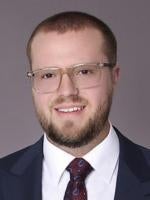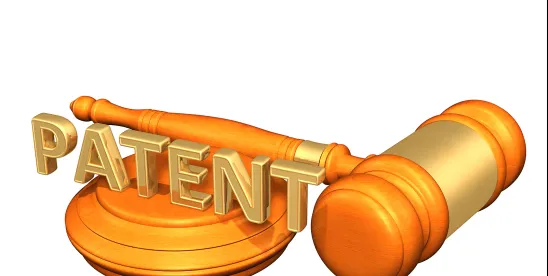This case[1] involves an appeal from Regeneron Pharmaceuticals, Inc.’s (Regeneron) efforts to prevent defendants from marketing biosimilar versions of EYLEA®, a drug used to treat eye diseases, by asserting patent infringement. In particular, the Federal Circuit addressed issues of personal jurisdiction, preliminary injunctions, and patent validity.
Background
Regeneron holds a Biologics License Application (BLA) for EYLEA®, which contains a fusion protein called aflibercept that acts as a vascular endothelial growth factor (VEGF) antagonist. This drug is commonly used for treating angiogenic eye diseases through intravitreal administration. Regeneron also owns patents related to the formulation and use of this drug. In 2022, Samsung Bioepis (SB) and other companies filed for FDA approval of EYLEA® biosimilars, prompting Regeneron to file patent infringement lawsuits against SB and other defendants. The case was consolidated in the Northern District of West Virginia, where another defendant is incorporated.
In the district court, Regeneron sought preliminary injunctions against SB and other defendants to prevent the sale of biosimilars that allegedly infringed on Regeneron’s patents. The district court granted Regeneron’s motion for a preliminary injunction, finding that Regeneron was likely to succeed on the merits of its patent infringement claims. The court determined it had personal jurisdiction over SB based on SB’s filing of an abbreviated BLA (aBLA) and its plans for nationwide distribution of its biosimilar product. SB contested these findings, arguing against the court’s jurisdiction and the validity of the preliminary injunction. Subsequently, SB appealed the district court’s decisions to the Federal Circuit, challenging both the jurisdictional ruling and the grant of the preliminary injunction.
Issue(s)
Whether the West Virginia district court had personal jurisdiction over SB, a South Korean company, based on its interactions and agreements related to the U.S. market.
Whether Regeneron demonstrated a likelihood of success on the merits and the threat of irreparable harm, justifying the preliminary injunction against SB.
Whether SB raised substantial questions regarding the validity of Regeneron’s patents, particularly concerning obviousness-type double patenting and written description sufficiency.
Holding(s)
The Federal Circuit affirmed that the district court had personal jurisdiction over SB, as SB had established distribution channels for its biosimilar that included West Virginia.
The Federal Circuit upheld the preliminary injunction against SB, finding that Regeneron met all the necessary factors, including likelihood of success and irreparable harm.
SB did not raise a substantial question of invalidity under the doctrines of obviousness-type double patenting or lack of written description support.
Reasoning
Regarding personal jurisdiction, the Federal Circuit found that SB’s filing of an aBLA, coupled with its agreement with Biogen to distribute the biosimilar nationwide, constituted sufficient minimum contacts with West Virginia. The Court emphasized that SB’s plans for nationwide distribution, without excluding any states, further supported jurisdiction.
Regarding the preliminary injunction, the Federal Circuit evaluated the four relevant factors: likelihood of success on the merits, potential for irreparable harm, balance of hardships, and public interest. Regeneron demonstrated a likelihood of success given the strength of its patent claims and SB’s inability to present a substantial invalidity defense. The Court found that Regeneron would suffer irreparable harm through market share loss and price erosion if SB launched its biosimilar. The balance of hardships favored Regeneron because Regeneron would suffer significant market disruption and loss of goodwill if the biosimilar products were launched, whereas SB would not face comparable harm from a delay in entering the market, given that the injunction would only temporarily prevent their entry until the patent issues were resolved. And, finally, the public interest supported enforcing valid patent rights.
On the issue of obviousness-type double patenting, the Federal Circuit concluded the patent at issue was patentably distinct from the reference patent, particularly due to its specific stability and glycosylation limitations. Regarding written description, the Court held that the patent at issue’s specification adequately supported the claims, with sufficient disclosure of the claimed stability levels of glycosylation.
In conclusion, the Federal Circuit upheld the district court’s decision to grant a preliminary injunction against SB, affirming that personal jurisdiction was appropriate and that Regeneron was likely to succeed on the merits of its patent infringement claims. The Court found no substantial question of patent invalidity, reinforcing the strength of Regeneron’s patent rights against marketing biosimilar versions of EYLEA®. This decision underscores the importance of detailed patent specifications and robust patent rights in biopharmaceutical patent litigation.
FOOTNOTES



 />i
/>i
